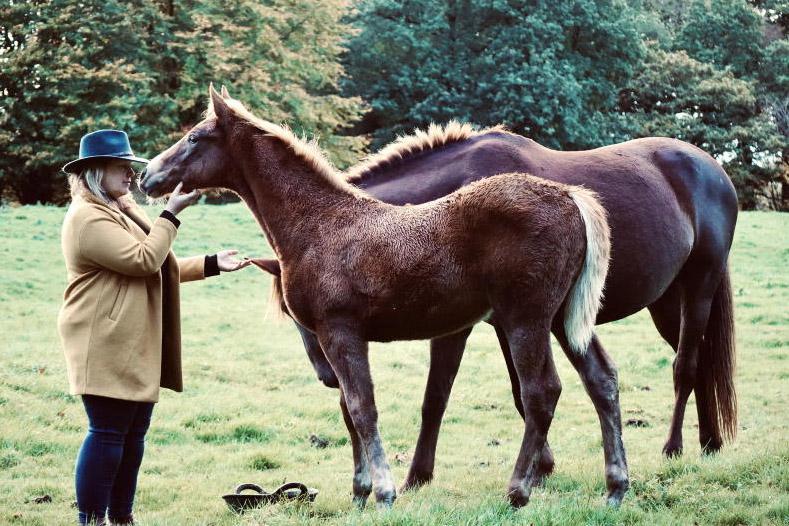Dear Enda,
My partner and I are hoping to get married soon. We have both been married before and both have teenage children. We are very unsure as to how our kids will get on as they don’t really know each other very well.
As we will all be living under the same roof, what can my partner and I do to prevent war breaking out?
Blending families is rarely easy. Some children may resist changes and you as a parent can become frustrated when your new family doesn’t function in the same way as your previous one. Trying to make a blended family a replica of your first family can often set everyone up for a lot of confusion and frustration. Your kids or your new spouse’s kids can feel uncertain about the upcoming changes, especially living with new step-siblings, who they may not know well, or worse, ones they don’t like.
Too many changes at once can unsettle children. Blended families have the highest rate of success if the couple waits two years or more to remarry. Taking your time gives everyone a chance to get used to each other, and the idea of forming a new family.
Agree with your new partner how you intend to parent together, and then make any necessary adjustments to your parenting styles before you remarry. It’ll make for a smoother transition and your kids won’t become angry at your new spouse for initiating changes.
Instead, embrace the differences and consider the basic elements that make a successful blended family.
Build a solid relationship first, because without it there is no family. It’s harder to maintain a marriage in a blended family because you don’t have the time to adjust as a couple like in most first marriages. You both have to mature into the marriage while parenting. If kids see love, respect and open communication between you and your spouse, they will feel more secure and are more likely to model those qualities.
You can’t insist on people liking each other
All relationships must be respectful, and this does not just refer to the kids’ behaviour towards you. You can’t insist on people liking each other, but you can insist that they treat one another with respect.
Love and affection take time to develop, so don’t expect to fall in love with your partner’s children overnight. Get to know them first. Find ways to experience “real life” together. Try to get the kids used to your partner and their children in daily life situations like doing the weekly shopping together. Don’t allow ultimatums.
All the kids may try to create a situation where you feel you have to choose between them. Remind them that you want both sets of people in your life. Children need to be able to count on both parents and step-parents. They may have already felt the upset of people they trust letting them down and may not be eager to give second chances to a new step-parent. So, let them see and feel your affection as a gradual process.
Include all the children in decisions so that everybody’s voice is heard. Show them that you can view the situation from their perspective and appreciate their input. This will help them emotionally connect to you as the step-parent.
They may need more time to bond
Children may not think they need limits, but a lack of boundaries sends a signal to the child that they are not worthy of your time, care and attention. As a new step-parent, you shouldn’t step in as the enforcer at first, but work with your spouse to set limits.
Adolescents aged 10 to 14 may have the most difficult time adjusting to a step-family. They may need more time to bond before showing their feelings openly and may be even more sensitive than young children when it comes to needing love, support, discipline and attention.
Teenagers 15 or older may have less involvement in step-family life. They may prefer to separate from the family as they form their own identities. They may not be open to expressing affection or sensitivity, but they all still want to feel important, loved and secure.
Above all, let the kids set the pace. They will fall out with each other, but this is not necessarily because of living in a blended family, it’s just the way life is.
With bucket loads of love and patience, everyone can develop a close bond with each other, and this is the key to achieving a successful blended family. So, best of luck from all of us in your new life together.
Enda Murphy is a cognitive behavioural therapist who focuses on supporting adults to support young people. For more details go to www.seeme.ie. Please email your own queries for Enda to advice@farmersjournal.ie
Read more
‘My 14-year-old is anxious that he might catch COVID-19 at school’
A crowd is not company
Dear Enda,
My partner and I are hoping to get married soon. We have both been married before and both have teenage children. We are very unsure as to how our kids will get on as they don’t really know each other very well.
As we will all be living under the same roof, what can my partner and I do to prevent war breaking out?
Blending families is rarely easy. Some children may resist changes and you as a parent can become frustrated when your new family doesn’t function in the same way as your previous one. Trying to make a blended family a replica of your first family can often set everyone up for a lot of confusion and frustration. Your kids or your new spouse’s kids can feel uncertain about the upcoming changes, especially living with new step-siblings, who they may not know well, or worse, ones they don’t like.
Too many changes at once can unsettle children. Blended families have the highest rate of success if the couple waits two years or more to remarry. Taking your time gives everyone a chance to get used to each other, and the idea of forming a new family.
Agree with your new partner how you intend to parent together, and then make any necessary adjustments to your parenting styles before you remarry. It’ll make for a smoother transition and your kids won’t become angry at your new spouse for initiating changes.
Instead, embrace the differences and consider the basic elements that make a successful blended family.
Build a solid relationship first, because without it there is no family. It’s harder to maintain a marriage in a blended family because you don’t have the time to adjust as a couple like in most first marriages. You both have to mature into the marriage while parenting. If kids see love, respect and open communication between you and your spouse, they will feel more secure and are more likely to model those qualities.
You can’t insist on people liking each other
All relationships must be respectful, and this does not just refer to the kids’ behaviour towards you. You can’t insist on people liking each other, but you can insist that they treat one another with respect.
Love and affection take time to develop, so don’t expect to fall in love with your partner’s children overnight. Get to know them first. Find ways to experience “real life” together. Try to get the kids used to your partner and their children in daily life situations like doing the weekly shopping together. Don’t allow ultimatums.
All the kids may try to create a situation where you feel you have to choose between them. Remind them that you want both sets of people in your life. Children need to be able to count on both parents and step-parents. They may have already felt the upset of people they trust letting them down and may not be eager to give second chances to a new step-parent. So, let them see and feel your affection as a gradual process.
Include all the children in decisions so that everybody’s voice is heard. Show them that you can view the situation from their perspective and appreciate their input. This will help them emotionally connect to you as the step-parent.
They may need more time to bond
Children may not think they need limits, but a lack of boundaries sends a signal to the child that they are not worthy of your time, care and attention. As a new step-parent, you shouldn’t step in as the enforcer at first, but work with your spouse to set limits.
Adolescents aged 10 to 14 may have the most difficult time adjusting to a step-family. They may need more time to bond before showing their feelings openly and may be even more sensitive than young children when it comes to needing love, support, discipline and attention.
Teenagers 15 or older may have less involvement in step-family life. They may prefer to separate from the family as they form their own identities. They may not be open to expressing affection or sensitivity, but they all still want to feel important, loved and secure.
Above all, let the kids set the pace. They will fall out with each other, but this is not necessarily because of living in a blended family, it’s just the way life is.
With bucket loads of love and patience, everyone can develop a close bond with each other, and this is the key to achieving a successful blended family. So, best of luck from all of us in your new life together.
Enda Murphy is a cognitive behavioural therapist who focuses on supporting adults to support young people. For more details go to www.seeme.ie. Please email your own queries for Enda to advice@farmersjournal.ie
Read more
‘My 14-year-old is anxious that he might catch COVID-19 at school’
A crowd is not company








SHARING OPTIONS